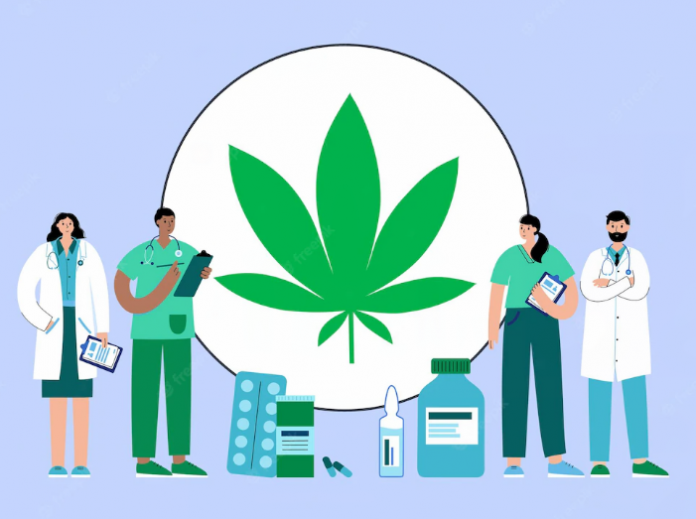Pharmaceutical drug manufacturing is the process of industrial-scale synthesis of pharmaceutical drugs. The drug manufacturing industry has become an important component of global medical systems. It consists of both public and private organizations that discover, develop and manufacture industry medications.
The pharmaceutical industry is primarily based on scientific research and the development of drugs used to diagnose and cure diseases and disorders. Modern scientific and technological advances are facing an increasing development and distribution of novel pharmaceuticals with better clinical activity and fewer side effects. Medical researchers, medicinal chemists, and pharmacists work together to improve the efficacy and specificity of drugs.
Drug manufacturing is the process whereby pharmaceutical companies create drugs on a wide scale. The process of producing drugs can be broken down further into a series of industrial processes. The drug manufacturing process is divided into some unit operations, such as the grinding process, compaction, and tablet pressing.
Role of pharmaceutical manufacturing industries
Pharmaceutical product manufacturing must be increasingly challenged to ensure flexibility of the active ingredients, as well as the safety and efficacy of the final products. These standards ensure that the manufactured drugs are safe and effective. Because minute changes in either of these aspects can have serious consequences for patients. So, the controls and checks implemented must be stringent.
The medical profession and patients constantly expect that medicines are produced consistently with high accuracy and safety. The responsibility to ensure drug safety lies entirely at the manufacturing stage, where it is important to comply with industry-accepted good practices to preserve safety and efficacy.
Benefits of an LMS for Pharmaceuticals
Determining a wide range of compositional characteristics in pharmaceutical manufacturing, such as moisture content, purity, or impurities in raw inputs, in-process drugs, and end products is important to ensure compliance with the requirements.
Pharmaceutical companies must conform to the medical organizations’ regulatory requirements. These companies must also support a wide range of clinical trials in due course. These companies must ensure the safety of the drugs and products they manufacture. Providing training for such informative and challenging situations necessitates exceptional skill sets and ongoing training. It is at this point that the role of a Learning Management System (LMS) for Pharmaceuticals comes to the forefront. Here are some important benefits of the LMS for pharmaceuticals:
- Cost-effective and all-in-one e-Learning software for all training requirements
- Greater team efficiency in terms of training
- Recruitment and training programs that are delivered effectively
- A large number of people can be trained by using various access logins
- Easier and faster to share knowledge
- Employee effectiveness can be easily measured through training programs
- Information can be easily updated and changed
- Content, based on FLASH and SCORM, is supported
- Product safety and regulatory compliance can be communicated most uniquely.
How eLearning can enhance training in pharmaceutical drug manufacturing
Pharmaceutical training enables you to understand the connection between scientific education’s learning process and the practical demands of pharmaceutical regulatory compliance. Online and public courses usually include discussions, case studies, and cooperative learning, taught by top industry experts who share their knowledge in an enthusiastic and interactive way.
A pharmaceutical company requires more training than any other company due to the complicated process of bringing new drugs into the market and ensuring compliance with all vital safety regulations. However, the volume of training that must be provided – often across various lines of businesses and geographies – makes it difficult to provide the right training to the right people, at the right time.
As an outcome, pharmaceutical companies are ahead of many other industries in using intelligent systems to provide training improvement services remotely. Many eLearning development companies across the world are closely working with pharmaceutical companies in developing online content.
Here are a few of the most important and efficient learning ways to implement online courses for your trainees in pharmaceutical manufacturing.
1. Mobile eLearning
This is exactly how eLearning can help companies by introducing mobile learning to employees. eLearning has made training much more efficient for digital marketers. Useful information and critical updates can now be accessed at any time. As an outcome, eLearning has proven to be a cost-effective way to meet the continuous learning needs of the marketing team in pharmaceutical companies.
2. Customize eLearning
eLearning can assist in the delivery of a variety of online compliance training modules for manufacturing training programs. Moreover, it can introduce new employees to pharmaceutical products, as part of a quality system recruitment process. These eLearning modules can also be used to provide existing workers with ongoing manufacturing training programs. Furthermore, using custom eLearning solutions, the training can be customized to your company’s specific requirements for use in the manufacturing process.
3. Virtual training
Online learning can be tedious for learning and development (L&D) managers in pharmaceutical companies where the workforce is large, and training on a variety of topics can be mandated. eLearning can assist in resolving such issues by creating virtual training programs for each subject matter needed. The best part of the process is that such programs can be used multiple times along the way.
4. Retraining programs
Online training allows learners to take the courses multiple times. They can re-visit the same course that they have dropped in the middle. Automating these courses and training courses with the help of an LMS encourages healthy competition within the team, thereby increasing employee performance.
5. Updating training programs
eLearning has made it easier for Pharma companies to stay up to date on the industry standards and information – at any time and from any location. Incorporating the most updated information into such courses helps get increased learning opportunities.
Conclusion
Apart from offering these benefits, eLearning can also provide a variety of opportunities, such as regular employee training and engagement programs in the pharmaceutical industry.



